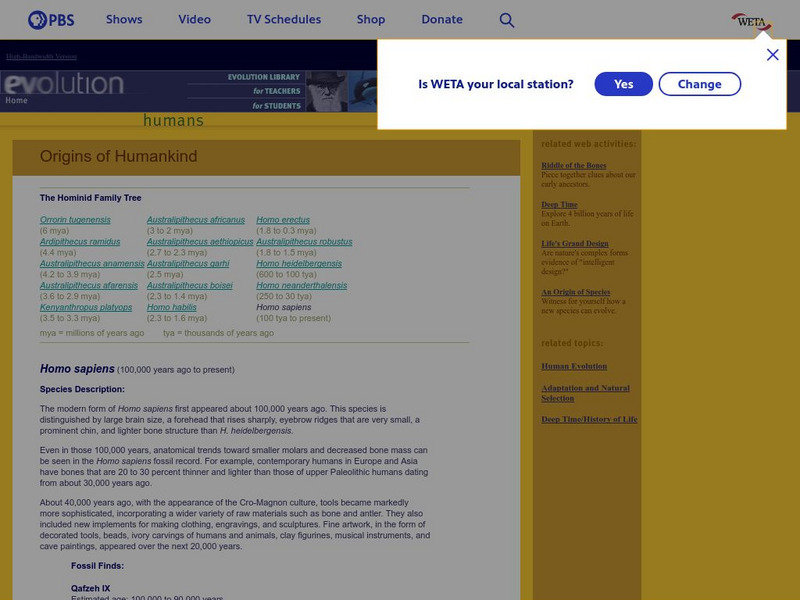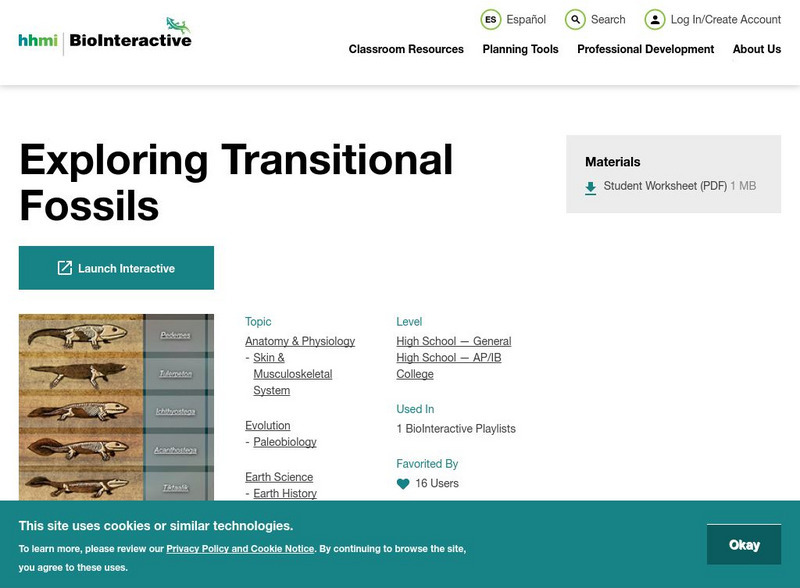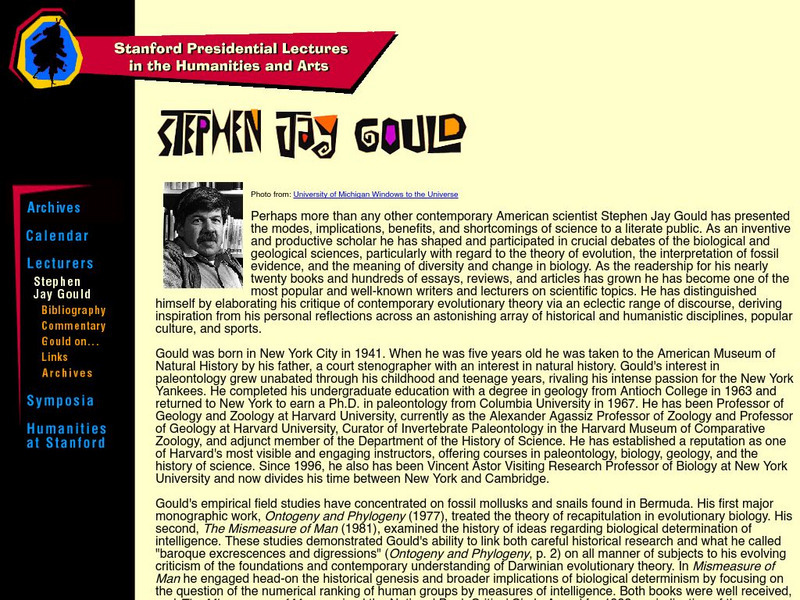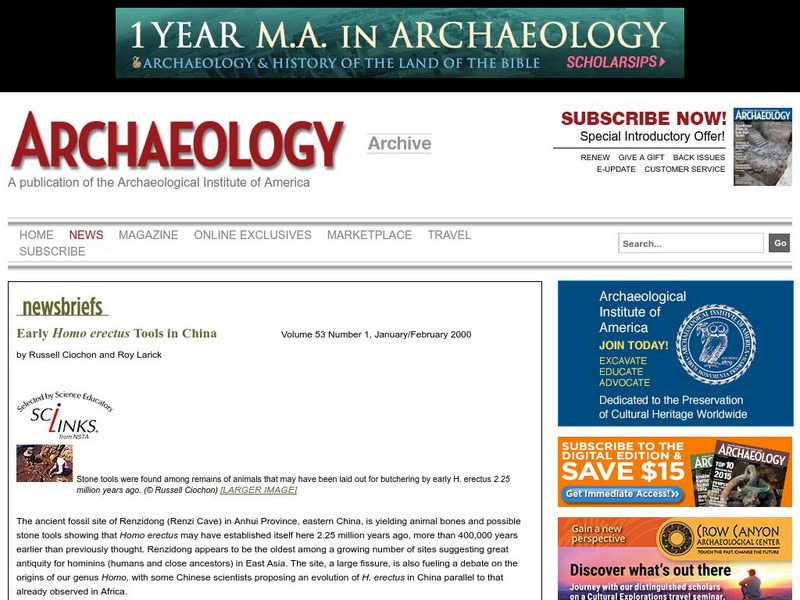PBS
Pbs: Evolution: Origins of Humankind: Homo Sapiens
Read a description of Homo sapiens as a species, learn about the variety of Homo sapiens fossils that have been found, and discover evidence of the culture of these early people.
Howard Hughes Medical Institute
Hhmi: Bio Interactive: Great Transitions Interactive
A Click and Learn that explores transitional fossils that provide key evidence for evolution. Use this slideshow to understand how small steps were required to make big evolutionary changes.
PBS
Pbs Teachers:how Did Humans Evolve?
Explore paleoanthropology by going on a virtual "dig" to answer questions about famous fossil finds. Explain how alternate hominid family trees result from different interpretations of the same fossil evidence.
Other
Utct Digi Morph: Digital Morphology the University of Texas
A dynamic archive of information on digital morphology and high-resolution X-ray computed tomography of biological specimens.
Famous Scientists
Famous Scientists: Charles Lyell
Learn about the works of Charles Lyell, a geologist who studied Earth's history.
Smithsonian Institution
National Museum of Natural History: Paleobiology: Geologic Time: The Oligocene
Travel through Earth's history to learn about the Oligocene time period, which is characterized by the appearance of most of the living families of mammals.
Stanford University
Stanford Presidential Lectures: Stephen Jay Gould
Standford University provides interesting biographical and professional information on Stephen Jay Gould and his many contributions to scientific thought, including his efforts to help people see science "As something that is important...
John Wiley & Sons
Wiley: Earth Through Time: Life of the Paleozoic: Phylum Chordata
Learn about the evolution of life in the Paleozoic Era based on fossil evidence of the five classes of fishes. Read about the role these chordates played in the evolution of tetrapods.
Archaeological Institute of America
Early Homo Erectus Tools in China
An article which describes a fossil site in eastern China where evidence has been found that Home erectus may have been active in eastern China some 400,000 years earlier than scientists believed. The authors also summarize the debate...
Smithsonian Institution
National Museum of Natural History: Homo Habilis
This resource provides graphics, as well as explanation, of the remains of Homo habilis.
Curated OER
Smithsonian Nmnh: What Does It Mean to Be Human, Human Evolution Evidence
What does it mean to become human? This brilliant and detailed resource examines early man's behavior, including information on stone tools he used, burial, clothing, and shelter. Find information on genetics including human skin color...
Curated OER
Unesco: Indonesia: Lorentz National Park
Lorentz National Park (2.35 million ha) is the largest protected area in South-East Asia. It is the only protected area in the world to incorporate a continuous, intact transect from snowcap to tropical marine environment, including...









